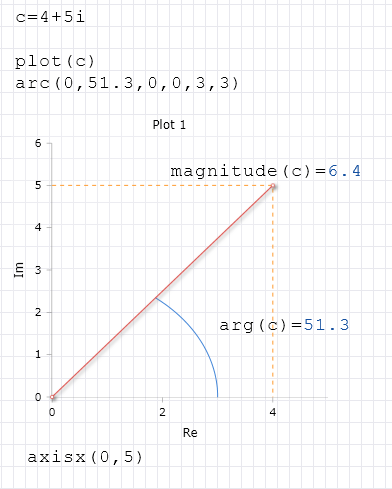Magnitude Function
Returns the absolute value of a complex number
Description
The function \(Magnitude\) returns the magnitude (or absolute value) of a complex number.
The magnitude corresponds to the absolute value of a complex number. It is the distance from the intersection of the x-axis and the y-axis to the two-dimensional point represented by a complex number.
The absolute value is calculated as follows
\( | a + bi | = \sqrt{ (a^2 + b^2)} \)
The magnitude and the phase define the position of a point representing a complex number in the polar coordinate system. You can determine a complex number based on its polar coordinates instead of its Cartesian coordinates by calling the FromPolar function.
Syntax
Magnitude (re + im)
Example
Magnitude(3+4i)= 5
Complex Functions
| Arg | Angle of a complex number |
| Complex | Create complex from two real |
| Conjugate | Get the conjugate values |
| FromPolar | Complex number from polar |
| Im | Gets the imaginary component |
| Imag | Creates a imaginary number |
| Magnitude | Gets the magnitude |
| Plot | Plot of complex numbers |
| Re | Gets the real component |
